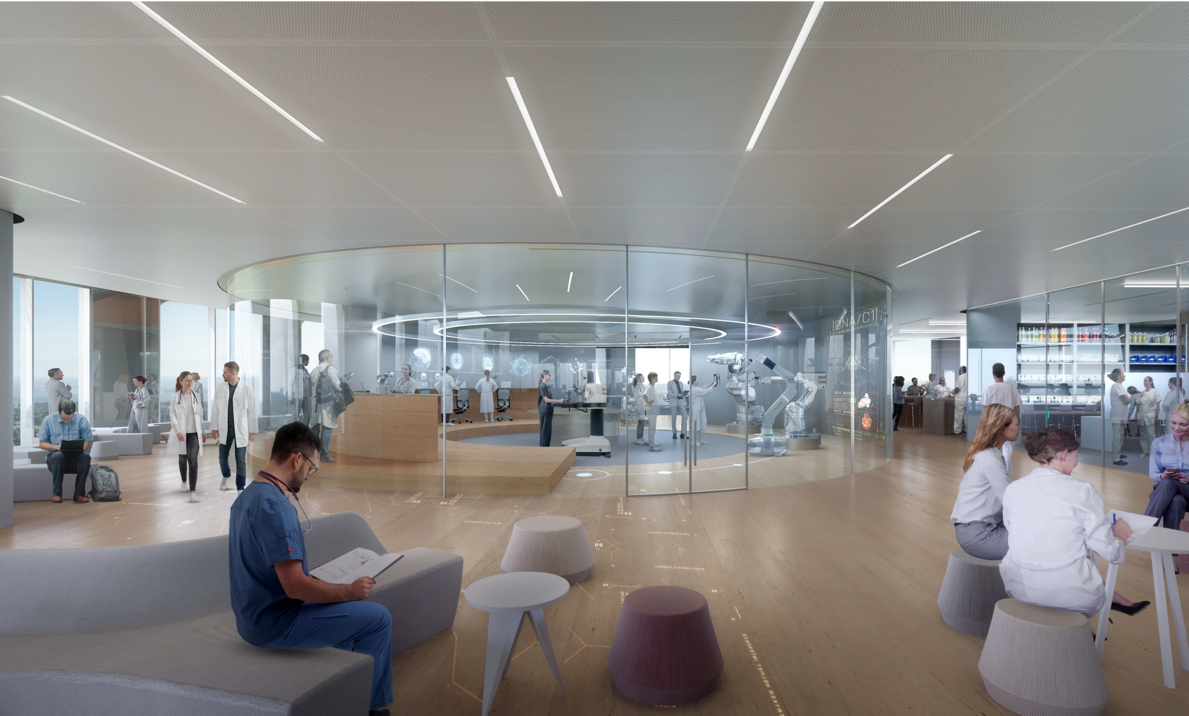The big questions
How do we design a health system that works for every Australian, no matter their age, their income or where they live? With a multi-million-dollar grant from The Ian Potter Foundation, that’s the big, complex question the UNSW Centre for Future Health Systems is seeking to answer.
The UNSW Centre for Future Health Systems is a big, bold initiative. It will lead to transformational change of the Australian health system, currently mired in centuries of historical and often out-dated practices, so that it can better serve Australian communities in the 21st century. It’s a complex undertaking which can only be accomplished with a truly interdisciplinary approach that includes not only the health sector, but experts in law, business, education, economics, engineering and data, too.
At the heart of this grand challenge lies the simple and fundamental notion that the best possible healthcare should be available to all Australians, everywhere and always. It’s an ambition shared by foundational funding partner, The Ian Potter Foundation.
The Foundation’s Board was impressed by how the UNSW proposal focused on prevention while also prioritising equitable access to affordable, quality healthcare for all Australians.
“These are important aspirations that strongly align with the Foundation’s vision for a fair and healthy Australia,” according to Lauren Monaghan, Health Program Manager of The Ian Potter Foundation.
The new Centre will see UNSW collaborate with clinicians, local health districts, industry, the government, partnering academic institutions and, importantly, the Australian community, to identify key areas of reform, and to design and deliver solutions that will improve the performance of all aspects of the national healthcare system. The remit of the Centre will include everything from hospital payment systems and clinician training to the swift and efficient delivery of new therapeutics and treatments.
It will be located within the UNSW Health Translation Hub within the Randwick Health & Innovation Precinct. The Precinct is a partnership founded by UNSW, the South Eastern Sydney Local Health District, the Sydney Children’s Hospital Network and Health Infrastructure NSW and supported with a $1.5 billion infrastructure investment.

“The intention to facilitate very large-scale interdisciplinary research that seeks to translate evidence into policy and clinical change, was a critical factor when considering the capacity for a university-led initiative to benefit the community at large,” Lauren says, explaining the thinking that went into the Board’s decision to support UNSW's funding proposal.
The goal of the Centre is to provide Australians with better access to the best possible healthcare and to reduce the cost burden of chronic illness. Modelling cited in a report from the Australian Government Productivity Commission last year estimated that by 2030, chronic illness will cost Australia a further $20.5 billion in lost productivity, $7.3 billion in welfare benefits and $4.7 billion in lost taxes. Moreover, the impacts of this burden of disease are felt disproportionately by a number of disadvantaged groups.
“We know Australia has one of the best health systems in the world but if COVID has shown us anything in the past 18 months, it’s that there are still significant pressures,” says Dr Zoe Terpening, Strategy & Precincts Director for UNSW Medicine & Health.
“Most of us know them well: increasing healthcare costs, increasing demand for services, as well as all the issues of access and disadvantage, particularly for Indigenous Australians.
“Patients get bounced around in an inefficient, disconnected health service. The time that's incurred – particularly delays for diagnosis and treatment – can lead to poor health outcomes, and more expense.
“There are great opportunities for us to reform how that system works, together. I think we are at that critical point in Australia where we can start to influence what the future of healthcare might look like.”
The early seed funding provided by The Ian Potter Foundation has rapidly accelerated the scale-up of the Centre and helped generate new partnerships. Just as valuable, however, is the supportive relationship that now exists between the Centre and the Foundation, Zoe says.
“It's not only the funding that's going to have an impact but the fact that we can genuinely partner and co-design this Centre with The Ian Potter Foundation,” she says.
“It’s going to be one of many partnerships we form for the initiative, which will be vital if we’re to have a real impact. The Centre may be based on the Randwick Precinct but it's never going to be that one building. Its impact will be much broader, on a national scale.”
The flagship Centre will unite researchers from across UNSW with more than 30 Precinct partner organisations. UNSW has more than 15 groups spread across multiple faculties of the University – Medicine and Health, Business, Law & Justice and others – working on health systems research, Zoe explains.
“The Centre will bring those groups together, but another purpose will be to provide leadership for groups like government, and to work more closely with health consumers, industry and other health providers. That’s the only way we can develop and test and implement solutions.”
The focus on implementation and systemic change will ultimately help to ensure that breakthrough innovations can realistically be translated into everyday practice.
The Centre’s focus on research translation was important to the Foundation, Lauren says.
“The greatest risk is that important and meaningful research does not lead to real-world benefits,” she says.
“The Foundation believes the Centre is well placed to alleviate this risk by delivering systemic change that leads to equitable access to quality healthcare for every Australian,” she says.
Professor Rebecca Ivers, Head of the School of Population Health, is also excited at the possibilities.
“Whether it’s looking at future workforce requirements, or how artificial intelligence and big data can be used to improve health outcomes, the Centre will harness the innovation and capability of our myriad researchers,” she says. “Working together through the Centre and with the support of the Foundation, we can address the key health challenges of the future.”








